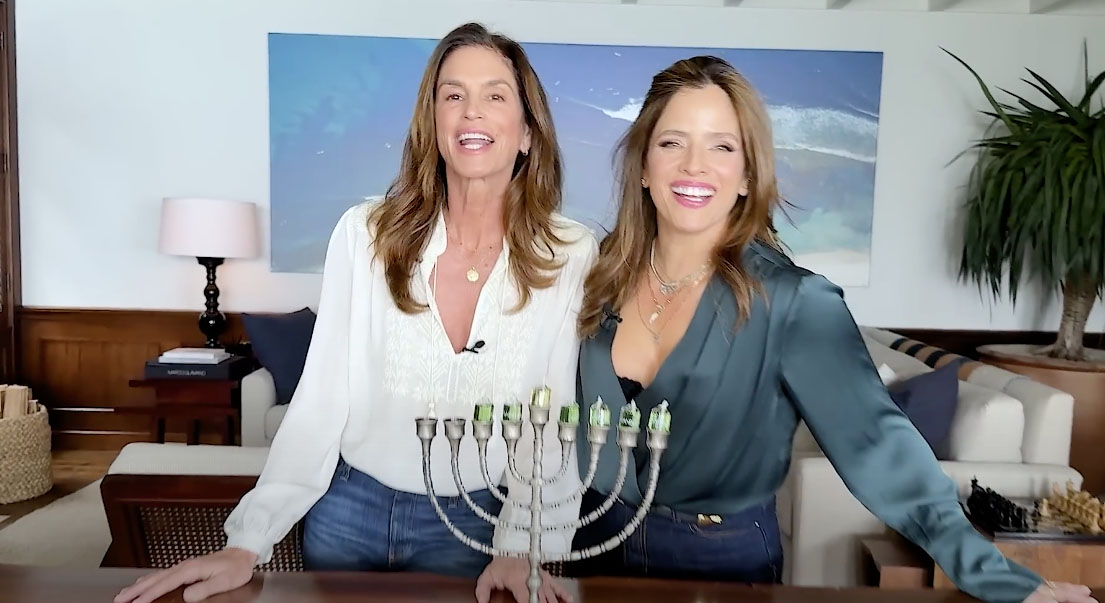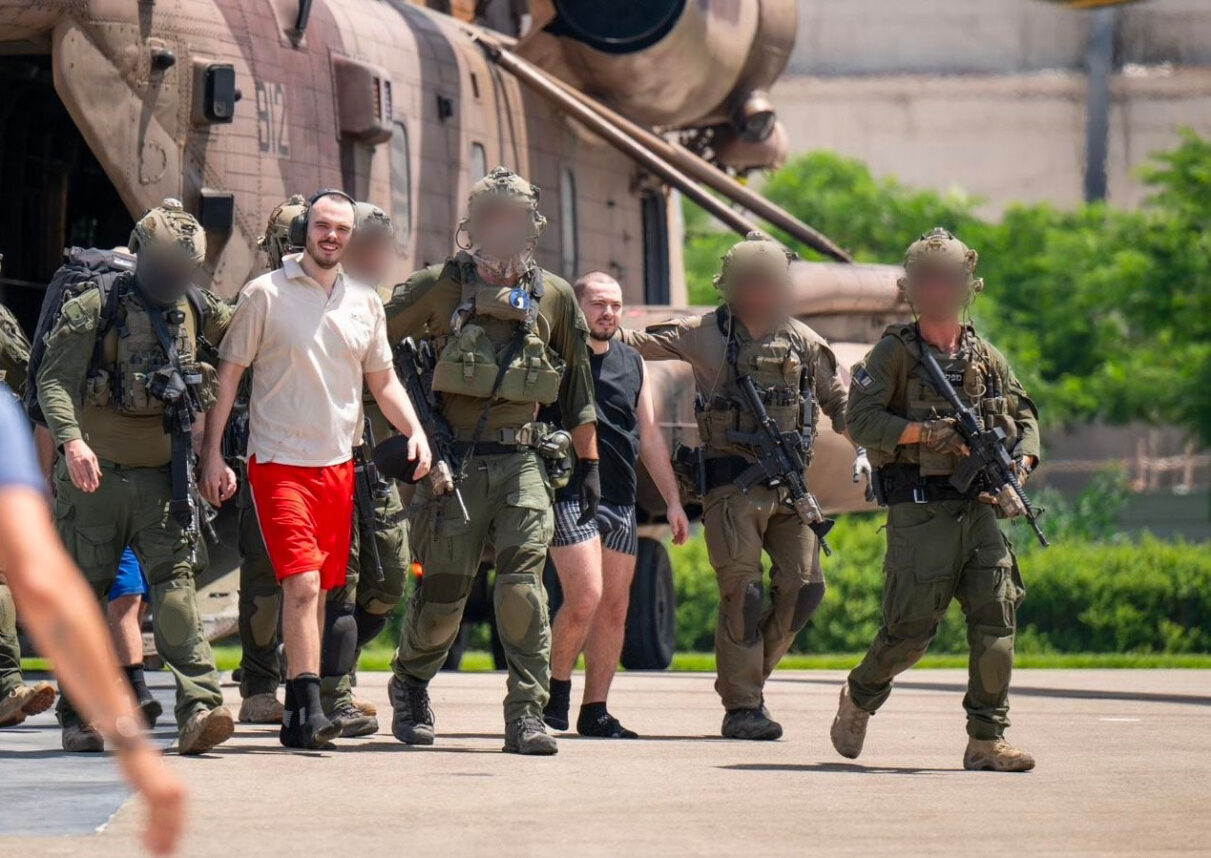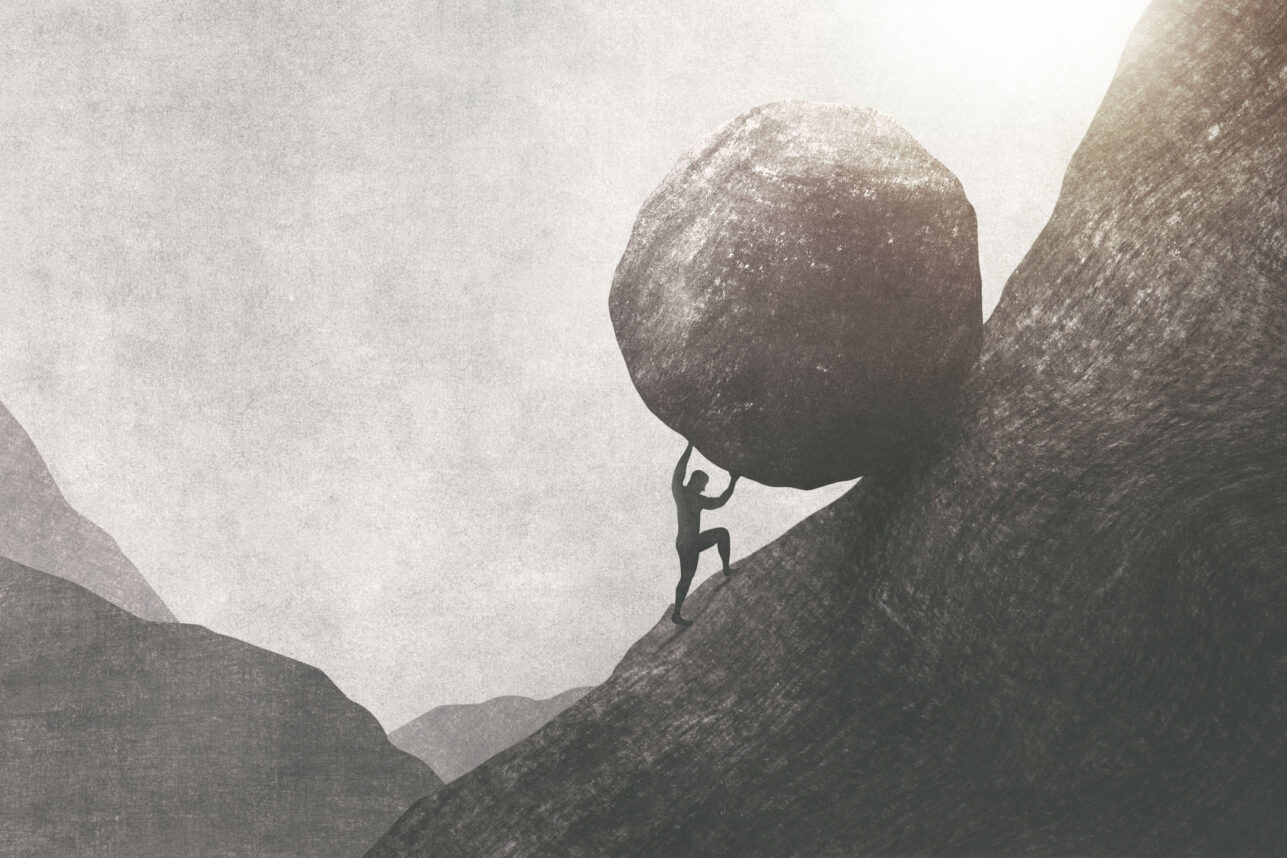My great-uncle, Jacques Graubart, came to town last weekend. Jacques, a fit and vigorous 79, has always been the superhero against whom I’ve measured my life. Jacques entered the Resistance when he was 19 and rowed hundreds of Jews to safety from occupied France into Switzerland. He was caught frequently by the French and escaped every time but the last time. Incarcerated by the Nazis in a series of concentration camps, Jacques survived a death march of prisoners that began with 1,400 and ended with himself and only three others alive.
He emerged from Buchenwald undaunted and became one of the world’s leading diamond dealers. Deeply involved in Israeli politics, his closest friends include prime ministers and ambassadors, journalists and best-selling authors. After quadruple bypass surgery, he still skis faster than teenagers. He is the real James Bond.
Jacques and my 4-month-old daughter, Chynna Bracha, met and hit it off. Chynna is purity, trust and a blissful unawareness. The world Jacques knew in the camps is one of horror and depravity. One day, Chynna may develop the need to understand evil. For now, though, the silent merging of the two worlds — the horrors Jacques knew and Chynna’s innocence — was almost vertiginous for me. They met instead on the common ground of love.
That weekend, Jacques perused two family photograph albums from the 1930s that my grandmother had spirited out of Europe on her own Holocaust odyssey. Jacques identified dozens of relatives and friends in the photos, almost all of whom were killed by the Nazis. To our surprise, one of the photos turned out to be the group picture from my grandparents’ wedding.
Seated in front of the wedding couple are their parents, my great-grandparents, whom the Nazis would kill seven years later. In fact, the Nazis would kill everyone in the photo except my grandparents and Jacques, the young boy standing at the extreme right. Unaware of the fate that would befall them, they looked like the cast of a Broadway play destined to close out of town.
Rabbi Harold Kushner wrote in “When Bad Things Happen to Good People” that evil exists because there are places in the universe that God hasn’t fully completed. These untamed pockets of chaos and disorder rain down harm on the innocent. But this explanation implies that God is less than all-powerful, and there is something deeply unsatisfying about that. Either God is everything or God is nothing. I can’t imagine that a divinely inspired universe could spin along for millions of years with so great a design flaw.
Of course not everyone believes in the existence of God. The great scientist, Richard Feynman, was a skeptic; he wrote that Earth seemed like an unlikely setting for the fight between good and evil. With all due respect, I disagree. I think Earth is an outstanding backdrop for that never-ending conflict.
The rabbis of the Talmud had a lot to say about evil. They posed the unanswerable question tzaddik v’ra lo, Talmudic shorthand for “How can evil befall the righteous?” They offered at least three responses: First, that sufferers would find bliss in an undefinable afterlife. Second, that in times of universal moral imperfection, good and evil fall randomly in the world; not because God isn’t in charge, but because we’re collectively too sinful to merit individual judgment. And third, Jews often receive joint reward or punishment because we are so tightly bound to one another.
Yet all these answers — Kushner’s, Feynman’s, the Talmud’s — are ultimately unsatisfying, because evil has to come from somewhere. It has to have an author, and so far, that author remains silent.
I brought the wedding picture to a photo refinisher who turned out to be a Holocaust survivor himself. He was a small boy in Belarus when the Nazis invaded his town and killed all the Jews — two-and-a-half hours after his family had escapec on foot, tipped off by a gentile neighbor. How appropriate — and yet how bizarre — that this man would be enlarging that wedding photo.
The enlargement will hang on the wall of our home, and one day Chynna Bracha will be old enough to ask me the story of her forebears in that photo, posing with hope and joy at the prospects for this new Jewish couple. I’d rather she asked me about the birds and the bees. I don’t know how to explain evil to a child, my child. I don’t even know how to explain it to myself.





















 More news and opinions than at a Shabbat dinner, right in your inbox.
More news and opinions than at a Shabbat dinner, right in your inbox.